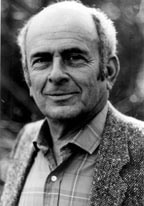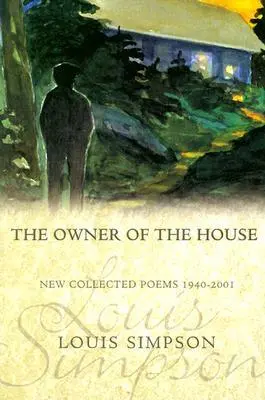
Louis Simpson is the author of 17 books of original poetry. He has won the Pulitzer Prize, and the Academy of American Poets 1998 Harold Morton Landon Translation Award. Among his many other honors are the Prix de Rome, fellowships from the Guggenheim Foundation, and the Columbia Medal for Excellence. He published his first book of poems, The Arrivistes (1949) in France. His other books of poetry include The Owner of the House: New Collected Poems, 1940-2001 (BOA Editions, 2003); Nombres et poussière; There You Are (Story Line, 1995); In the Room We Share (1990); Collected Poems (1988); People Live Here: Selected Poems 1949-83 (1983); The Best Hour of the Night (1983); Caviare at the Funeral (1980); Armidale (1979); Searching for the Ox (1976); Adventures of the Letter I (1971); Selected Poems (1965); At the End of the Open Road, Poems (1963), and A Dream of Governors (1959). He translated Modern Poets of France: A Bilingual Anthology and is author of the memoir, The King My Father’s Wreck (Story Line 1995), and published a volume entitled Selected Prose (1989). He earned wide acclaim for his books of criticism, which include: Three on the Tower (1975), a study of Ezra Pound, T.S. Eliot, and William Carlos Williams; Ships Going Into the Blue: Essays and Notes on Poetry (1994); The Character of the Poet (1986); A Company of Poets (1981) and A Revolution in Taste: Studies of Dylan Thomas, Allen Ginsberg, Sylvia Path, and Robert Lowell (1978).
Born in Jamaica, Simpson studied at Columbia University; served in the Second World War followed by studies at the University of Paris after which he earned his Ph.D. at Columbia where he went on to teach. He also taught at the University of California at Berkeley, and the State University of New York at Stony Brook.
Louis Simpson lived for many years in Setauket, New York, on the north shore of Long Island, near Stony Brook. He died on September 14, 2012. (Academy of American Poets) The New York Times offered this look back at his life and accomplishments.

Judges’ Citation
Louis Simpson has been enriching the tradition of poetry in English for over 60 years, from his eloquent poems of the Second World War to the later understated, sometimes dyspeptic, tales of contemporary suburban life.
Selected poems
by Louis Simpson
Whatever it is, it must have
A stomach that can digest
Rubber, coal, uranium, moons, poems.
Like the shark, it contains a shoe.
It must swim for miles through the desert
Uttering cries that are almost human.
Copyright © 2003 Louis Simpson
American Poetry
You will never write the poem about Italy.
What Socrates said about love
is true of poetry – where is it?
Not in beautiful faces and distant scenery
but the one who writes and loves.
In your life here, on this street
where the houses from the outside
are all alike, and so are the people.
Inside, the furniture is dreadful –
flock on the walls, and huge color television.
To love and write unrequited
is the poet’s fate. Here you’ll need
all your ardor and ingenuity.
This is the front and these are the heroes –
a life beginning with “Hi!” and ending with “So long!”
You must rise to the sound of the alarm
and march to catch the 6:20 –
watch as they ascend the station platform
and, grasping briefcases, pass beyond your gaze
and hurl themselves into the flames.
Copyright © 2003 Louis Simpson